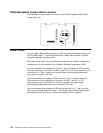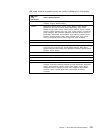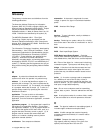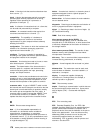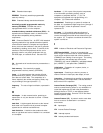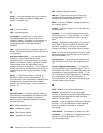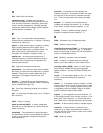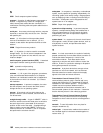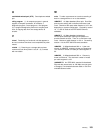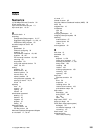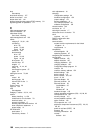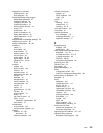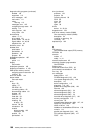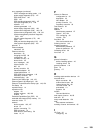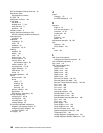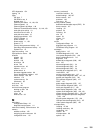U
unshielded twisted pair (UTP). See telephone twisted
pair.
utility program. (1) A computer program in general
support of computer processes; for example, a
diagnostic program, a trace program, a sort program.
(2) A program designed to perform an everyday task
such as copying data from one storage device to
another.
V
virtual. Pertaining to a functional unit that appears to
be real, but whose functions are accomplished by other
means.
volatile. (1) Pertaining to a storage device whose
contents are lost when power is cut off. (2) Contrast
with nonvolatile.
W
write. To make a permanent or transient recording of
data in a storage device or on a data medium.
10BASE-F. 10 Mbps baseband fiber optic. Dual fiber
point-to-point cabling with no defined maximum node
count. Maximum fiber optic cable distance is 0.5–2 km,
depending on system configuration. Covered by section
16, 17, and 18 drafts of the IEEE 802.3 Ethernet
standards.
10BASE-T. 10 Mbps baseband twisted pair.
Point-to-point twisted-pair cabling and repeaters to
provide network services. There is no maximum node
count. Maximum cable distance is 100 m. Covered by
section 14 of the IEEE 802.3 Ethernet standards.
10BASE2. 10 Mbps baseband 200 m. A low-cost
version of 10BASE5, commonly known as Cheapernet.
The maximum number of nodes per cable segment is
30.
10BASE5. 10 Mbps baseband 500 m. Commonly
known as Ethernet. The maximum number of nodes
per cable segment is 100.
100BASE-TX. An IEEE 802.3 standard for baseband
Ethernet data transmission at 100 Mbps over two pairs
of Category 5 unshielded balanced cable or 150 Ohm
shielded balanced cable.
Glossary 183



